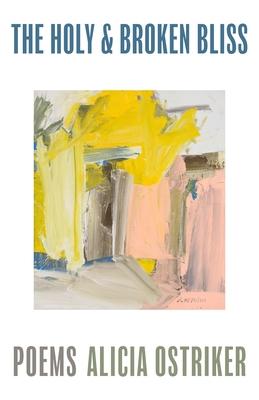How can we find meaning in the face of aging, illness, and the inevitability of death? How can we respond to the double plague of a fierce pandemic and a divided society? The keenly observant and urgent poems of The Holy & Broken Bliss are grounded in daily existence, human tenderness, the rituals of a long marriage, and the poet's ongoing spiritual quest. In the middle of a world that seems to be breaking down into suffering and anger, the spare and direct lines of these poems, surrounded by silence, offer a kind of healing. The poems ask us to consider what living looks like inside of ongoing misery (misery we often are responsible for making and accepting). They call us to ask ourselves how we locate joy and even laughter when despair is ever-present. The Holy & Broken Bliss contemplates free will, autonomy, self-control, the commodification of ourselves, and our desires for vengeance, satiation, rage, and acknowledgment of our collective sicknesses, along with the sacred possibilities of love, communication with nature, the power of art, and the "need to praise."

How can we find meaning in the face of aging, illness, and the inevitability of death? How can we respond to the double plague of a fierce pandemic and a divided society? The keenly observant and urgent poems of The Holy & Broken Bliss are grounded in daily existence, human tenderness, the rituals of a long marriage, and the poet's ongoing spiritual quest. In the middle of a world that seems to be breaking down into suffering and anger, the spare and direct lines of these poems, surrounded by silence, offer a kind of healing. The poems ask us to consider what living looks like inside of ongoing misery (misery we often are responsible for making and accepting). They call us to ask ourselves how we locate joy and even laughter when despair is ever-present. The Holy & Broken Bliss contemplates free will, autonomy, self-control, the commodification of ourselves, and our desires for vengeance, satiation, rage, and acknowledgment of our collective sicknesses, along with the sacred possibilities of love, communication with nature, the power of art, and the "need to praise."